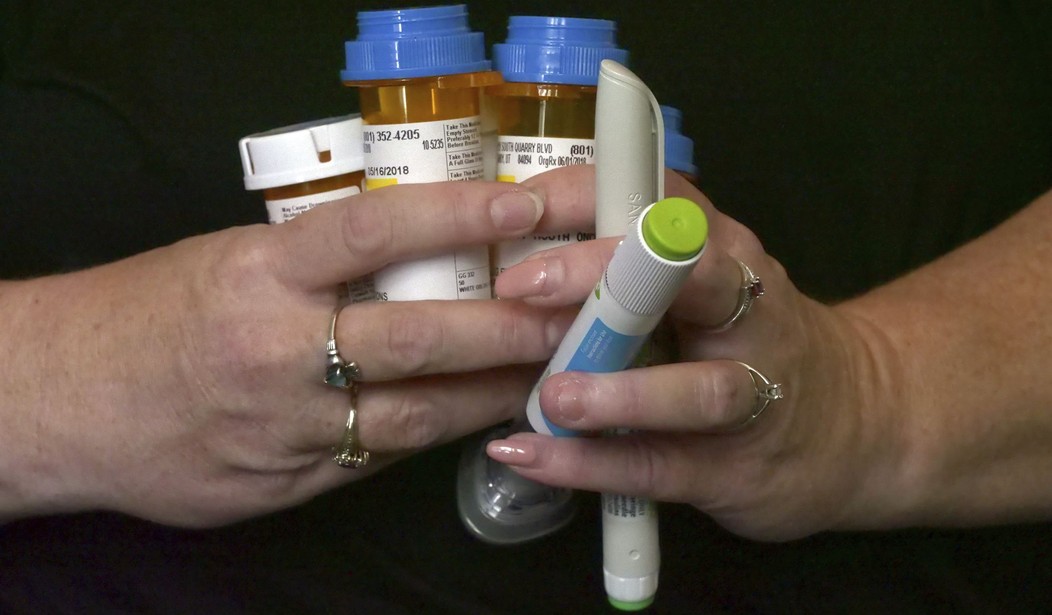Across the country, states are removing ineligible Medicaid recipients from their rolls, a process that resumed in April after a three-year pause during the pandemic.
This return to normal will save taxpayers money, and it's unlikely to leave anyone without health insurance unless that's what they choose.
Some Democratic lawmakers are decrying the process as hasty and unfair. Yet everyone still has the right to apply or re-apply for Medicaid. If they don't qualify, they can seek subsidized insurance through a state marketplace or an employer.
It's hardly unfair to expect that Medicaid be reserved for those who are actually eligible for the program -- and that those who are ineligible take responsibility for securing health insurance for themselves.
Medicaid provides free health coverage to tens of millions of low-income people. During the pandemic, enrollment skyrocketed because of the program's new continuous coverage requirement, a relief effort enacted by Congress that effectively prevented states from booting anyone from Medicaid for the duration of the public health emergency. Enrollment in Medicaid and the Children's Health Insurance Program expanded to over 92 million through the end of last year -- an increase of more than 21 million relative to February 2020.
So far, more than a million people have been unsubscribed from Medicaid since the "redetermination" period began this spring, and about 17 million people will lose coverage in total, according to estimates from the Kaiser Family Foundation.
But only a fraction of these people are likely to lose access to health insurance.
According to estimates by the Department of Health and Human Services, nearly half of those disenrolled will remain eligible for Medicaid. As mandated by federal law, re-enrollment is a simple process, often only requiring that people update their contact information via an online form. Many states launched awareness campaigns months ago urging Medicaid beneficiaries to renew their coverage. Some of these campaigns, like the one in Arkansas, include reaching out directly to people who could be affected.
Recommended
It's not unreasonable to ask Americans to click through a website in exchange for receiving taxpayer-funded health insurance. Democrats' apparent belief that this administrative burden is too heavy reflects a serious lack of faith in people's competence.
Critics of redetermination also worry that even in cases where Medicaid re-enrollment is possible, administrative churn could cause people to be temporarily uninsured. But this claim is misleading, because Medicaid will retroactively cover up to three months' worth of medical bills for new or returning enrollees.
Of course, some people will no longer be eligible for Medicaid because their income has gone up. But they have other options.
The Congressional Budget Office projects that more than half of those who lose Medicaid will transition to employer plans. This is a money-saving corrective for state governments. The CBO reports that nearly 22 million Americans had multiple sources of health insurance coverage last year, most commonly due to having both Medicaid and an employer-sponsored plan. What a waste of public funds.
Many ex-Medicaid recipients who don't get employer coverage will buy insurance on state marketplaces, which heavily subsidize plans based on income.
Most of the growth in Medicaid subscribership during the pandemic was due to the freeze on disenrollment, rather than new applications caused by economic hardship. Disenrolling people now is not some grave injustice but a return to the kind of due diligence any public benefit program requires.
At the root of the debate over Medicaid redetermination is the idea that policy responses to COVID-19, like the disenrollment pause, have somehow left us all helpless -- so much so that we can no longer fill out an online form. Democrats seem to want to use the public health crisis to move us towards greater dependance on an ever-more-paternalistic state.
Instead, it's time for a return to individual responsibility. That includes taking charge of one's own health care. There's no good reason to delegate that task to the government.
Sally C. Pipes is President, CEO, and Thomas W. Smith Fellow in Health Care Policy at the Pacific Research Institute. Her latest book is False Premise, False Promise: The Disastrous Reality of Medicare for All (Encounter 2020). Follow her on Twitter @sallypipes.

























Join the conversation as a VIP Member